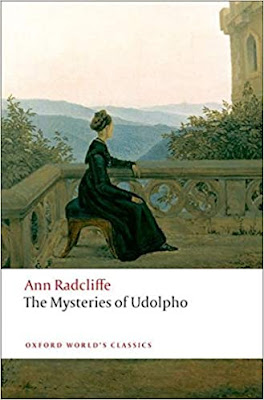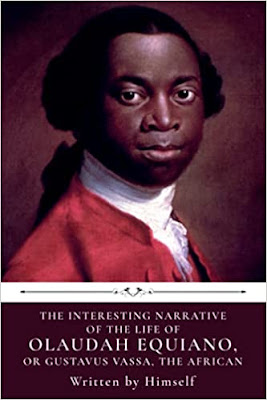Camilla
It was with
much anticipation I went into “Camilla”. Frances Burney’s first novel “Evelina”
is to this date one of the best books I have read on this List and “Camilla”,
being her third novel, had to be good. “Camilla” is not a bad novel, but it is
in my opinion an inferior novel to “Evelina”, partly due to some plot flaws and
partly because it has not aged as well. Where “Evelina” pointed forward, it
feels as if “Camilla” is pointing backwards.
In “Camilla”
we follow the Tyrold family, the timid and meek Lavinia, the emotional Camilla
and the scholarly but deformed Eugenia. They have grown up in the virtuous and
protected home of Pastor Tyrold and Mrs. Tyrold. Mr. Tyrold is the younger brother
of the country Squire Sir Hugh Tyrold, a generous and not too clever older man
without children himself. His nieces spend a lot of time at his place, Cleves,
together with Sir Tyrold’s other niece Indiana Lynmere, a very pretty, but vain
and vacant girl.
During the
period of what appears to be one summer the girls are exposed to the
surrounding world and the dangers lurking everywhere. There are two main
plotlines. One is of Camilla and her on/off relationship with Edgar Mandlebert,
the other is the terrible adventures of Eugenia.
Camilla and
Edgar are in love with each other, but instead of being candid about it, they
manage to misunderstand each other to an exceptional degree. This is largely
driven by Edgar’s wish to get proofs that 1. Camilla actually loves him (which is
sort of understandable) and 2. That she will be a good wife. As Edgar is a very
old school prude and puritan, this means that Camilla should not see the wrong
people or do any wrong and certainly not be improper in any way at all. Since
being exposed to world means that Camilla will get in contact with all those
things, especially as she is untutored and have grown up in ignorance, Edgar, always
lurking in the background sees plenty of things that convinces him that Camilla
is not up to his standards.
Eugenia is
subjected to blow after blow. At first it was Sir Tyrold’s plan to marry her to
his nephew Clermont (incestuously?!) who were on the Continent studying. For
this purpose, Eugenia received scholarly training for which she has a great
talent. Clermont, when he returns, turns out to be a jackass and a moron and
certainly not interested in Eugenia. Then Eugenia meets the equally scholarly
Melmond, but he sees only Indiana’s beauty and finally she is the prey of
mercenary and brutal fraud Alphonso Bellamy.
“Camilla”
is a long book, over 900 pages, but we get the outline of these plots rather
early and the bulk part of the volume is mainly Camilla and Eugenia sinking
deeper and deeper into trouble. Their trouble of the heart is supplemented and,
in my opinion, overtaken by pecuniary trouble. None of the younger generation
in the Tyrold household has any sense of economy, especially the brother Lionel
and Clermont, who between them manage to throw away thousands of pounds, threatening
to ruin both Tyrold households. When Camilla through little fault of her own is
preyed on to lose a much smaller amount, she sees herself as the ruin of the
family.
Burney is
very good with characters. Every character is distinct with their own idiosyncrasies.
Sometimes bordering caricature, but they are all alive and real people. Burney
also has a very good sense of the environment into which the characters move.
You get a feeling she was not only an observer but actually was there in these
settings, in the Rooms in Tunbridge or the bathhouses in Southampton. This is
not an imagined world as much as a real world with imagined characters. She is
also good at setting up the drama. The trouble Camilla and Eugenia get into is
very real trouble, especially the pecuniary trouble and the hole they find
themselves in is very deep indeed.
Unfortunately,
as mentioned above, there are a number of problems here. One has to do with
plot resolution. With about 50 pages to go I got the feeling Burney herself got
confused how to resolve this. There are some very real problems here, both for
Camilla and for Eugenia, but instead of working towards a resolution we spend
the majority of the end-section with Camilla fretting, crying and gushing without
anything really coming out of it, while around her, things sort themselves out
on their own. Just like that. Even Eugenia, the most capable of the girls, just
resigns and have outside agents, through accidents, sort things out. Why did
nobody call out Mrs. Mittens?
Another
problem has to do with the characters and their sentiments. Camilla always
means well, but is either mislead by principles and good heart or is simply too
unprepared for the outside world and consistently makes the wrong choices. And
Edgar… if ever I saw a “hero” who did not deserve to be one. Very early I
decided very much against him. To paint him and his sentiments in a positive
light was so at odds with my own opinion. I was wondering why on Earth Camilla
was pining for him at all. Somebody needed to kick him badly, and when he comes
around in the end, it is not with an excuse for his opinions or actions, but
because he is now convinced she is good enough. Phew.
My two favorite
characters were by far Mrs. Arlbery and Sir Sedley Clarendel. Both represent
modern ideals, free people who are capable of doing what they want, not caring of
the opinion of prudes, but smart enough to make the right choices. And both of
them with a heart. I get the feeling Burney actually admired this type, but was
afraid to make them the ideal of the story. Their sentiments were completely at
odds with those of the Tyrolds’ and particularly Edgar, representing as they
were the modern world. Mrs. Arlbery also called out Edgar early on and warned
Camilla what kind of marriage she was aiming for with him. When Sir Sedley
takes an interest in her she gets the chance of setting herself free, but decides
not to. That is her choice of course, but it also marks this as a poorly aged novel.
I did enjoy
reading “Camilla”, Frances Burney is too good a writer not to, but it was at
times an infuriating read and not up there with “Evelina”.













